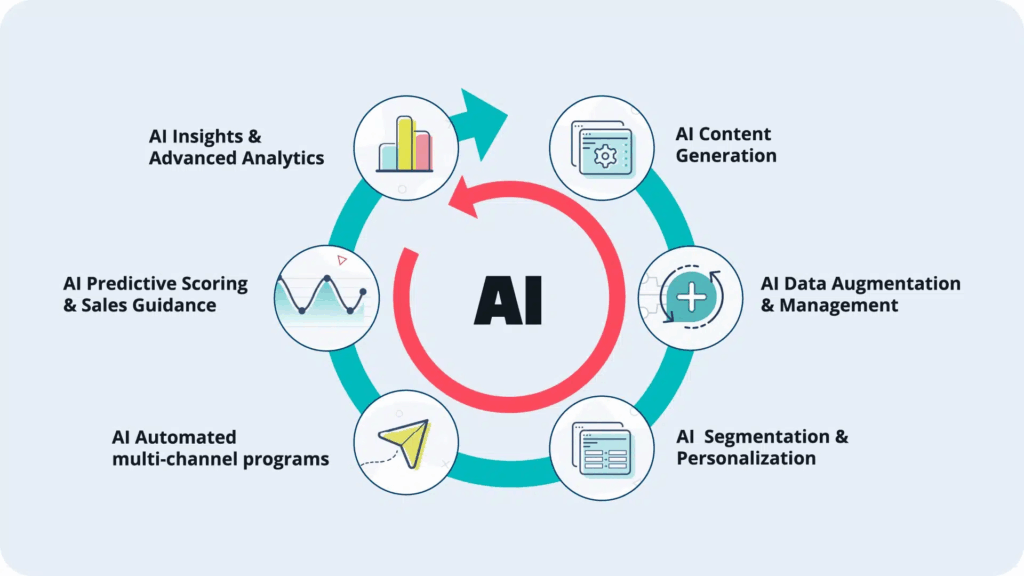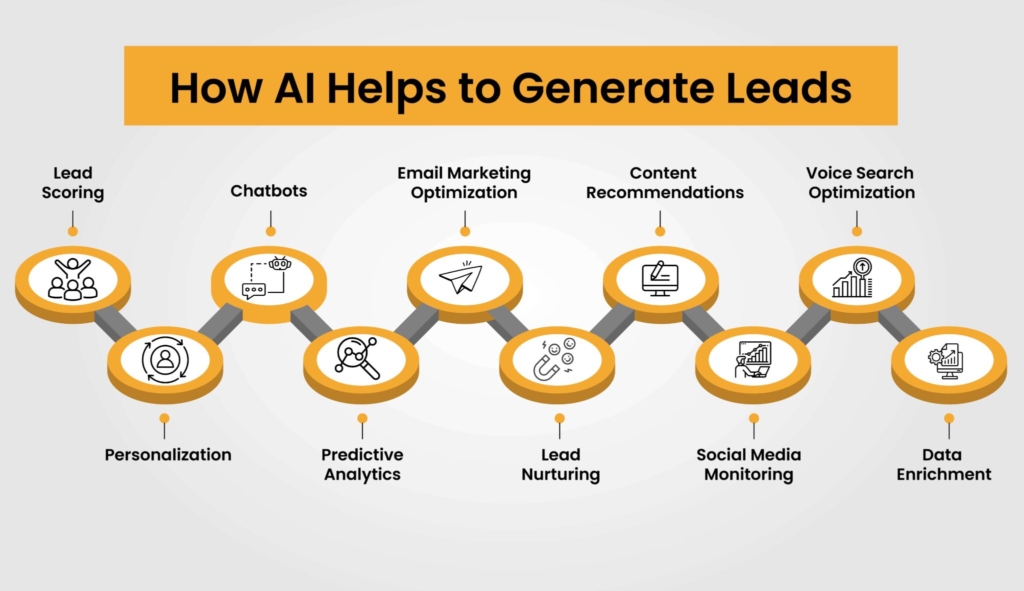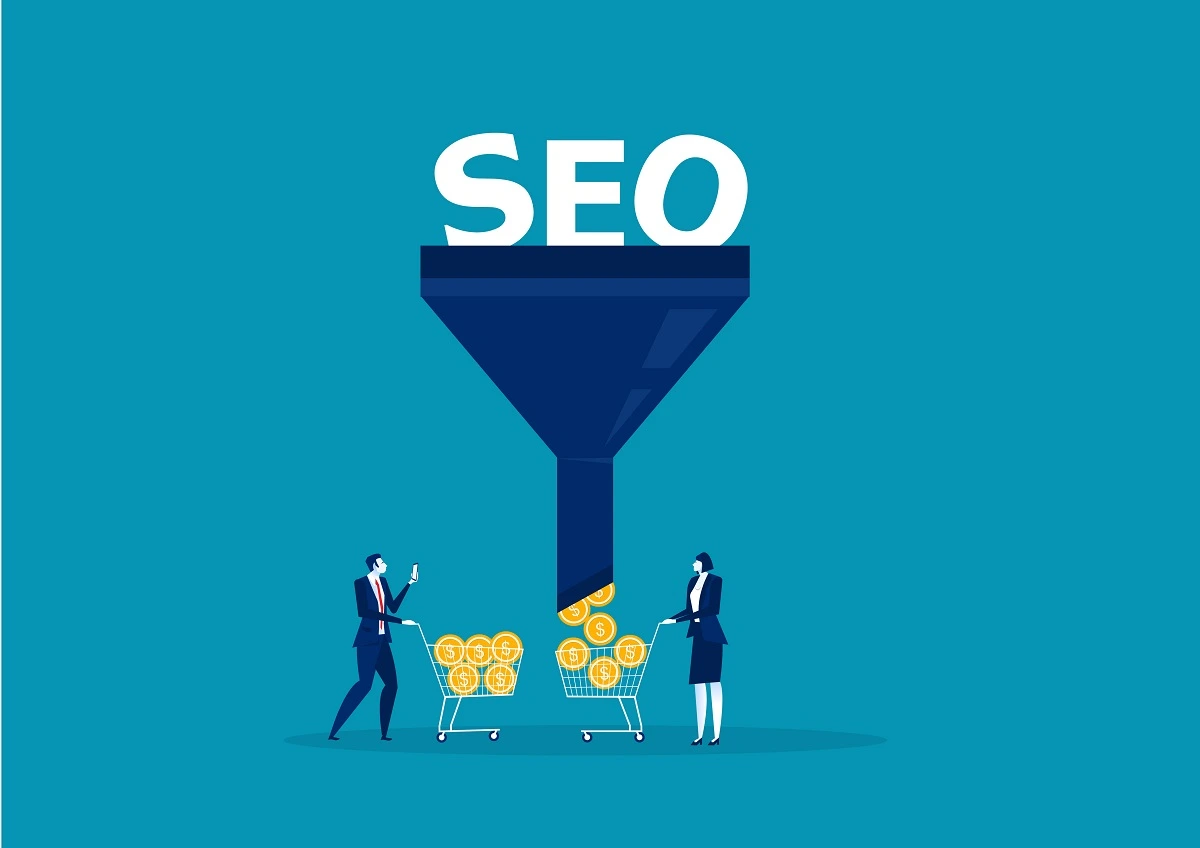AI and Sales Automation: Streamlining Your B2B Lead Process
B2B sales teams manage some of the most demanding and time-intensive pipelines in business. With multiple decision-makers involved and long buying cycles, even the most skilled sales professionals can find themselves buried under repetitive tasks like data entry, follow-ups, and qualification checks.
With AI sales automation, businesses can speed up lead processing, identify the most promising opportunities, and ensure every interaction with buyers feels timely and relevant. Sales teams gain the freedom to focus on what they do best: building relationships and closing deals. This article explores how AI-driven automation reshapes each stage of the lead process, from prospecting through conversion, and how organizations can integrate these tools to achieve stronger sales outcomes.
Quick Takeaways
- AI sales automation improves lead accuracy, speed, and scalability.
- Intelligent workflows reduce manual tasks, allowing reps to focus on relationship-building.
- Automated insights and predictive analytics lead to higher conversion rates.
- Integration with CRM and marketing platforms creates a seamless buyer journey.
Why AI Sales Automation Matters in B2B Sales
Unlike consumer sales, the B2B process requires extended nurturing and careful account management. Deals often involve several stakeholders, each with unique priorities and approval authority. In this environment, inefficiencies such as missed follow-ups or poor lead qualification can cause opportunities to disappear.AI sales automation provides the consistency and precision needed to manage these demands. Automated systems handle repetitive processes like updating CRM records, scheduling meetings, and generating follow-up reminders. At the same time, AI analyzes large datasets to help teams prioritize the right accounts. Instead of relying on intuition, reps make data-driven decisions that increase win rates and shorten deal cycles.

Lead Identification and Prospecting with AI
Finding the right leads has always been one of the biggest challenges in sales. Traditional prospecting often depends on manual research, cold calls, or lists purchased from third parties. These methods consume time and frequently produce low-quality results.
With AI sales automation, prospecting becomes far more precise. Intelligent algorithms scan firmographic data, online behavior, and intent signals to identify companies that match an ideal customer profile. AI also highlights prospects showing signs of active interest, such as content engagement or solution searches. Instead of casting a wide net, sales teams can focus on accounts most likely to convert. This shift reduces wasted effort on unqualified leads and allows reps to dedicate more energy to meaningful conversations.
Smarter Lead Qualification Through Automation
Even when leads are plentiful, not all are worth pursuing. Sales teams often spend hours assessing whether a prospect is truly ready to engage, which slows down the pipeline. AI solves this challenge with automated lead qualification.
By analyzing behavioral data, CRM history, and previous engagement, AI sales automation tools assign scores to prospects. Leads with higher scores move quickly to sales, while those with lower scores continue through nurturing campaigns. This ensures that marketing and sales operate with a shared definition of a qualified lead, reducing friction between departments. Automated qualification not only accelerates the handoff process but also improves overall conversion rates by ensuring sales invests time where it matters most.
Enhancing Lead Nurturing and Engagement
In long B2B cycles, consistent communication can make the difference between a deal closing or a prospect going silent. Yet maintaining personalized engagement with hundreds of prospects is nearly impossible for human reps alone.
AI sales automation fills this gap with intelligent nurturing workflows. Automated systems deliver content aligned with each buyer’s stage in the journey, from awareness to decision-making. For example, AI-powered email campaigns adjust based on recipient behavior; opening an email triggers one path, while downloading a whitepaper triggers another. Chatbots handle initial inquiries, qualify leads in real time, and connect buyers with human reps when deeper expertise is required. These strategies ensure that prospects feel seen and supported without overwhelming sales teams.

Closing Deals Faster with Predictive Insights
The final stretch of a sales cycle often determines whether months of effort translate into revenue. Here, predictive insights powered by AI provide a competitive edge.
Machine learning models review past deal data to identify which actions are most likely to move a prospect toward closing. These systems can recommend the best time to schedule a follow-up, flag potential objections, and even forecast revenue outcomes. Automation further supports reps by managing repetitive tasks such as contract reminders, demo scheduling, and final proposal distribution. With these tools, deals progress more quickly through the pipeline, reducing cycle length and increasing overall win rates.
Integrating AI Sales Automation with CRM and Marketing Tools
For AI to deliver maximum value, it must integrate seamlessly with the systems sales teams already use. Integration ensures consistent data, smooth collaboration, and accurate reporting across the buyer journey.
Modern AI sales automation connects directly to CRM platforms to automatically update records and surface insights. It also integrates with marketing automation systems to provide a unified view of engagement, from initial awareness campaigns to final purchase decisions. For instance, when a lead shows strong buying intent (such as attending a webinar or revisiting pricing pages) AI can trigger an alert in the CRM, prompting immediate sales outreach. These connections keep teams aligned and responsive, eliminating silos that often slow the sales process.
Overcoming Challenges of AI Sales Automation
Despite the clear benefits, implementing AI sales automation is not without hurdles:
- Data quality issues can limit the accuracy of AI-driven insights.
- Integration difficulties may cause delays when connecting automation tools with existing systems.
- Sales team resistance sometimes arises from fears that automation will replace human judgment.
Organizations can overcome these challenges by:
- Rolling out automation in phases to test and refine high-impact workflows before scaling.
- Maintaining clean and accurate data to improve AI reliability and performance.
- Providing training and support so sales professionals feel confident using new tools.
- Positioning AI as a complement, not a replacement, to reinforce the value of human oversight in relationship-building and decision-making.
Strengthen Your Lead Process Today with Televerde
AI sales automation offers a proven path to stronger pipelines, faster cycles, and higher conversion rates. From lead identification to final deal closure, automation enables sales teams to work smarter, not harder. The organizations that embrace these tools will find themselves better positioned to compete in crowded B2B markets.
Televerde helps businesses harness AI-driven sales automation to streamline lead processes and improve outcomes. With advanced technology and deep expertise, Televerde ensures your teams gain the efficiency and insights they need to thrive. Ready to enhance your lead process? Explore how Televerde can help you build an AI-enabled sales strategy that drives measurable growth. Contact us to learn more.


